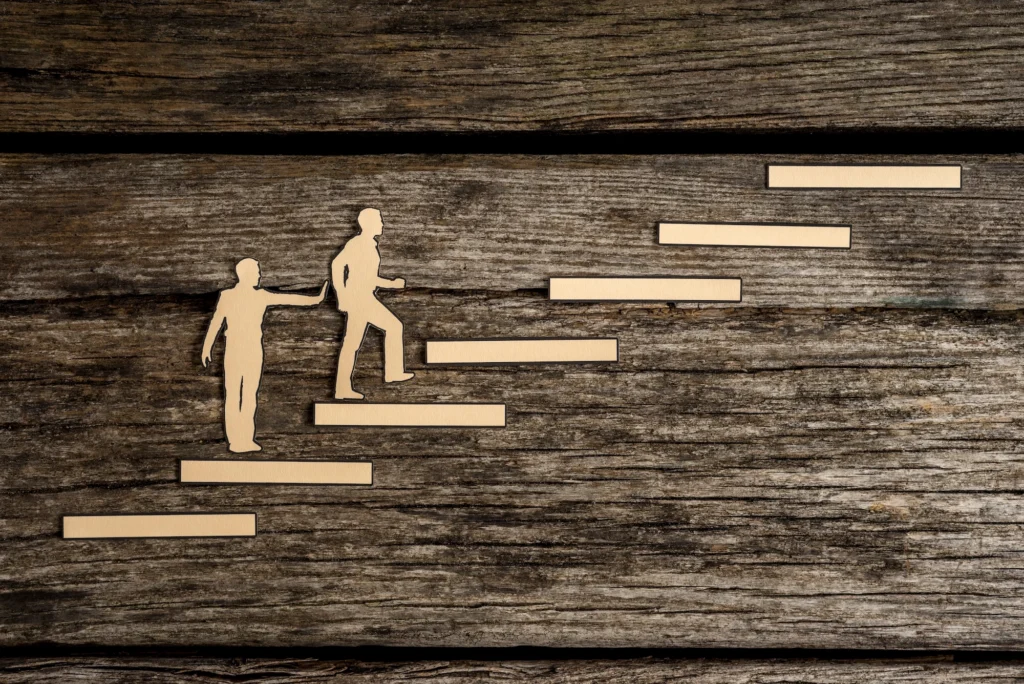Relapse is common in the journey of recovering from substance abuse. Even though it can be tough, it doesn’t mean you’ve failed. Knowing why relapse happens and what to do next can help you get back on track.

What is a Relapse?
A relapse is when someone who has stopped using drugs or alcohol starts using again. It can happen at any stage of recovery and is often triggered by stress, places, or feelings. Relapse is not a sign of failure but a sign that your treatment needs to be adjusted or improved.
Why Does Relapse Happen?
Relapse can happen for many reasons:
- Emotional Triggers: Stress, anxiety, or depression can lead to a relapse if not handled well. Think about breakups, financial issues, or arguments with your partner, all of those are huge stressors that can lead to relapse if not handled correctly.
- Social Pressures: Being around people or places where drugs or alcohol are used can be tempting. Weddings, super bowl parties, social gathering in general are all among the top events that people in early recovery stated were very tempting to use again.
- Lack of Support: Feeling alone or without support can make someone turn back to substances. Isolation is never a good idea but especially for someone in early recovery and even more so for someone who is having relapse behavior.
- Complacency: Thinking you’re “cured” and no longer need to follow a recovery plan can lead to relapse. This right here is probably the most common downfall for people in recovery, the thought that they have not used a drink or drug for a period of time and they can stop working on their recovery.
- Unresolved Issues: Not dealing with mental health issues or past trauma can cause someone to seek comfort in substances. Trauma, although not something to address in the first 30-90 days of recovery is one of the leading causes of relapse if not addressed.

Steps to Take After a Relapse
Having a relapse can be hard, but taking these steps can help you move forward.
1. Acknowledge the Relapse
Recognize and accept that a relapse has happened. Denying it can make things worse. Understand that relapse is a part of the recovery process and doesn’t mean you’ve failed. Read that again!
2. Reach Out for Support
Contact your support network—family, friends, sponsor, or support group. Let them know what happened and ask for their help and encouragement. Talking about it can give you the strength to move forward. If you want to speak with a professional please reach out to Asheville Recovery Center for a consultation.
3. Evaluate the Situation
Think about what led to the relapse. Identifying triggers and situations can help you develop ways to avoid them in the future. At Asheville Recovery Center, a drug and alcohol rehab located in Asheville North Carolina, we use a practice called a relapse autopsy to dive deeper into what caused the relapse.
4. Revisit Your Treatment Plan
Your treatment plan might need changes. Talk with your counselor, therapist, or treatment provider about what happened and how your plan can be improved. Don’t try to deal with your relapse by yourself.
5. Get Professional Help
Consider going back to a treatment program. This could be a short stay in a rehab facility or more counseling sessions. Professional help can give you the support needed to regain control.
6. Engage in Healthy Activities
Find healthy ways to deal with stress and emotions. Exercise, hobbies, and mindfulness practices like meditation or yoga can help manage triggers and build strength against future relapses.
7. Set Realistic Goals
Set small, achievable goals to help you regain confidence and momentum. Celebrate each milestone, no matter how small, to stay motivated.
8. Stay Positive and Patient
Recovery is a long journey. Stay positive and patient with yourself. Relapses are setbacks, not the end of your recovery. With determination and the right support, you can overcome them and continue your journey.
Don’t Let One Slip Define You
Just because you relapsed doesn’t mean you need to continue the relapse until it gets even worse. This kind of thinking is not correct or healthy. Think of it like going to the gym or dieting. If you skip a workout or eat something unhealthy, it doesn’t mean you should give up on your fitness goals entirely. You wouldn’t decide to stop going to the gym just because of one missed session or quit your diet because of one unhealthy meal. Instead, you would recognize the slip, understand why it happened, and get back on track as soon as possible. The same approach applies to your recovery journey.
The Role of Support Systems in Recovery
Having a strong support system is crucial in recovery. Whether it’s family, friends, or a support group, having people who understand and support your journey can make a huge difference.
Family and Friends
Your family and friends can offer emotional support and encouragement. They can help you stay accountable and provide a sense of belonging and love. Open communication with your loved ones about your struggles and progress can strengthen these relationships and provide the support you need.
Support Groups
Support groups, like Alcoholics Anonymous (AA) or Narcotics Anonymous (NA), offer a community of people who understand what you’re going through. These groups provide a safe space to share your experiences, gain insights from others, and receive encouragement. Regular attendance can help you stay focused on your recovery goals.
Professional Support
Counselors, therapists, and treatment providers offer professional guidance and support. They can help you develop coping strategies, address underlying issues, and adjust your treatment plan as needed. Professional support is especially important after a relapse to ensure you get back on track effectively.
Practical Tips for Maintaining Sobriety
Staying sober requires ongoing effort and commitment. Here are some practical tips to help you maintain sobriety:
1. Create a Structured Routine
Having a structured daily routine can help you stay focused and avoid triggers. Plan your day with healthy activities, work, hobbies, and self-care. Consistency can provide a sense of stability and purpose.
2. Practice Self-Care
Taking care of your physical and mental health is crucial. Make sure to get enough sleep, eat nutritious meals, and exercise regularly. Self-care also includes doing things you enjoy and finding time to relax and unwind.
3. Develop Healthy Coping Mechanisms
Find healthy ways to cope with stress and emotions. This can include exercise, meditation, journaling, or talking to a trusted friend. Having multiple coping strategies can help you manage difficult times without turning to substances.
4. Set Clear Boundaries
Set firm boundaries with people, places, and situations that may trigger a relapse. This might mean avoiding certain social gatherings or being upfront with friends about your need to stay away from substances. Protecting your sobriety should be a top priority.
5. Stay Connected with Your Support Network
Regularly check in with your support network. Attend support group meetings, keep in touch with your sponsor, and stay connected with family and friends. Having a strong support system can provide ongoing encouragement and accountability.
6. Continue Personal Growth
Recovery is a continuous process of personal growth. Keep working on your personal development, whether through therapy, self-help books, podcasts or educational resources. Staying engaged in your growth journey can help you stay motivated and focused.
Why Reach Out to Asheville Recovery Center?
If you’re struggling with relapse, professional help is crucial. Asheville Recovery Center offers a full program of support and treatment to help you get back on track. Here’s why reaching out to us can make a difference:
Personalized Treatment Plans
At Asheville Recovery Center, we understand that each person’s journey is unique. We create personalized treatment plans tailored to your specific needs and circumstances. Our approach ensures that you get the support and resources necessary for your recovery.
Experienced and Compassionate Staff
Our team of experienced professionals is dedicated to helping you achieve lasting sobriety. We offer compassionate care and support, guiding you through every step of your recovery journey. Our staff is trained to address the complexities of addiction and provide effective treatment strategies.
Full Range of Services
We offer a range of services, including working with dedicated detox facilites, inpatient and outpatient programs, therapy, and aftercare support. Our comprehensive approach ensures that you have access to the resources and support needed at every stage of recovery.
Holistic Approach
We believe in treating the whole person, not just the addiction. Our holistic approach includes addressing physical, emotional, and mental health. We offer therapies like yoga, meditation, and evidence based therapies such as CBT and DBT.
Supportive Community
At Asheville Recovery Center, you’ll find a supportive community of individuals who understand what you’re going through. Our community provides a safe and encouraging environment where you can share your experiences and gain strength from others. Please reach out to us 24/7 via phone at (828) 518-6996 or fill out a contact form and one of our dedicated staff members will reach out.
Conclusion
Relapse is a challenging but sadly a very common part of the recovery journey. It doesn’t mean failure but a chance to reassess and strengthen your recovery approach. By acknowledging the relapse, seeking support, evaluating the situation, and making necessary changes to your treatment plan, you can continue on your path to sobriety. Stay positive, patient, and proactive in your efforts, and remember that each day is a new opportunity to make progress.






